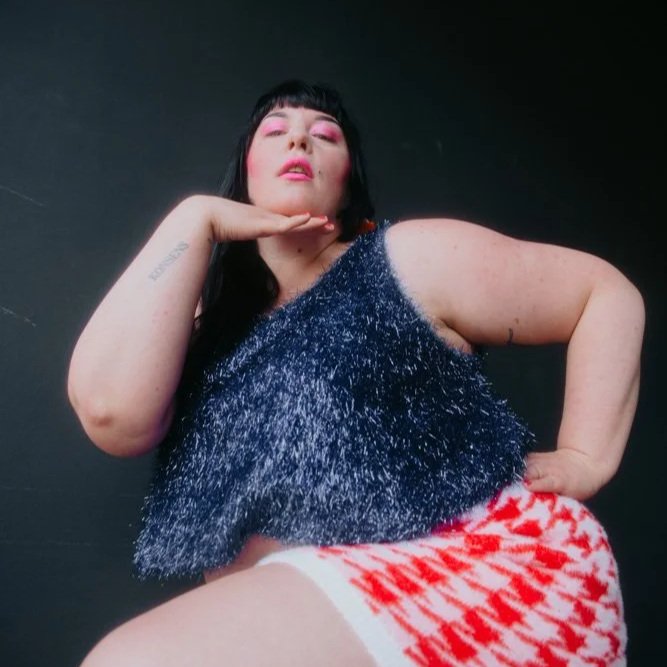I need and always needed spaces where I can be allowed to be soft, vulnerable, visible and open about myself and my appearance. So I also know how important the way of talking and choosing words is when it comes to describing haircuts, because they are so close-knit with identity.
Read MoreBeing an independent artist and an educator is becoming increasingly difficult in Slovakia. We live in a time when society is closing itself off into ideological frameworks in which otherness, critical thinking, and autonomy are no longer welcome.
Read MoreSince last October, the growing instrumentalization of anti-Semitism by Zionist groups around the world, including those who identify with feminisms and the anti-fascist movement, is notorious.
Read MoreIn light of the proliferation of AI technology and its far-reaching impact, we find ourselves amidst new paradigms of power…
Read MoreKateryna Lysovenko was born in 1989 in Ukraine and currently lives and works in Vienna. She has recently participated in the exhibition “Goodbye East, Goodbye Narcissus!” at the Contemporary Art Museum Estonia (EKKM)…
Read MoreWhen you savor and eat this rich and aromatic dessert, let it bring you towards an embodied commitment to making a better future. One that foregrounds woman*, life, freedom.
Read MoreSymbiocene accelerated: the reverse of the Capitalocene at hundreds of terrestrial translations.
Read MorePhilipp Muerling is a student at the Academy of Fine Arts Vienna (Akademie der bildenden Künste Wien) and is the first and only student in a wheelchair in the more than 300-year history of the institute…
Read MoreA new green revolution started in the spring of 2022 with the new old slogan “Stop to Lithium'' and “Stop to Rio Tinto” only two months before a new presidential election in Serbia…
Read MoreWe think promoting Goran Bregović, a performer who sympathizes with Russian imperialism in such a terrible time for Ukrainians is an ignorant and cynical move…
Read MoreI have experienced censorship in different ways. I had only a brief encounter with military and totalitarian censorship when I was working on a project about the Graffiti of the Revolution in Cairo—I was warned that certain artistic positions have disastrous consequences, so I had to be careful about what I said and how I said it.
Read MoreThere is an ongoing, urgent humanitarian crisis on the Polish-Belarusian border. Refugees, who are trying to get to Europe, are pushed back into the primal forest by Polish Border guards and then harassed back into the wilderness by the Belarusian military. They wander without water, food, or shelter, and the weather is getting harsher. Humanitarian activists from NGO Nomada are currently collecting smartphones so people can ping their location and ask for help.
Read More“I believe in the principles of democracy and realize that it can only work with a good education. In this case, it is necessary to be awake and aware of the system’s complexity and to choose means of expression that also reflect the historical context of the territory in which I work. If I subsequently present it in another country, different perceptions occur in the viewer, and the work, by relocating, acquires a new dimension. Context, always important, is what should be available here.”
Read More












